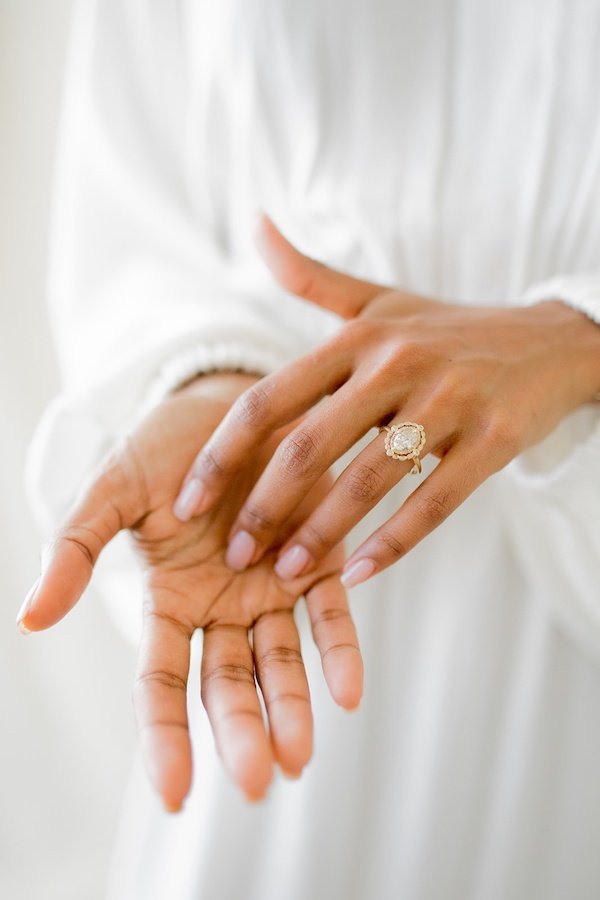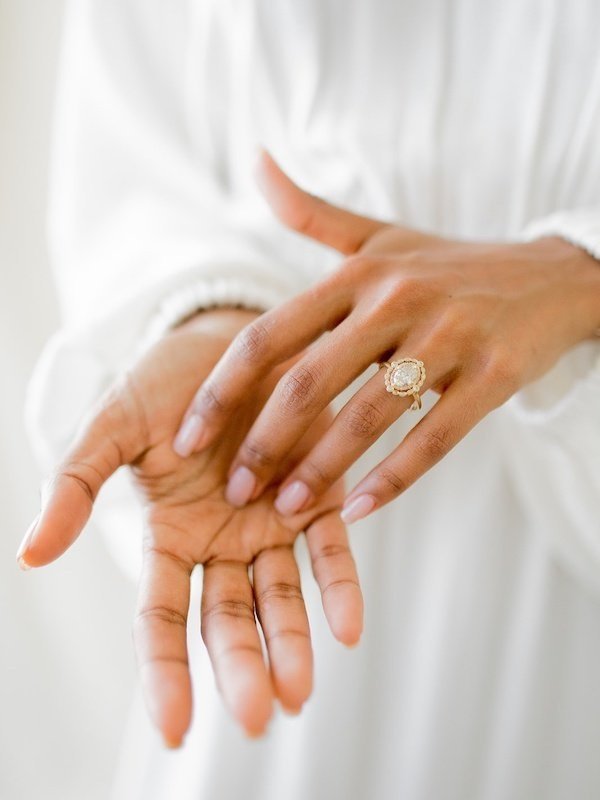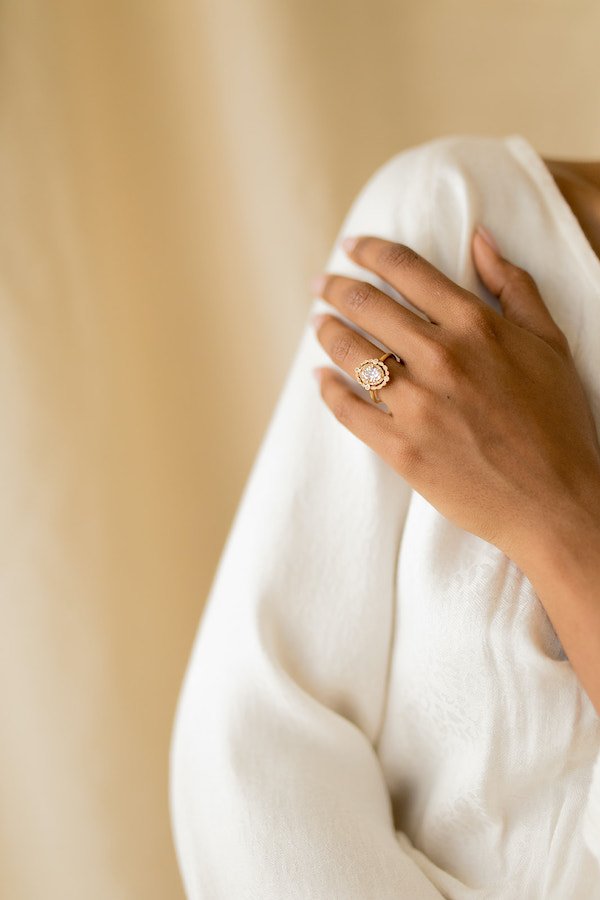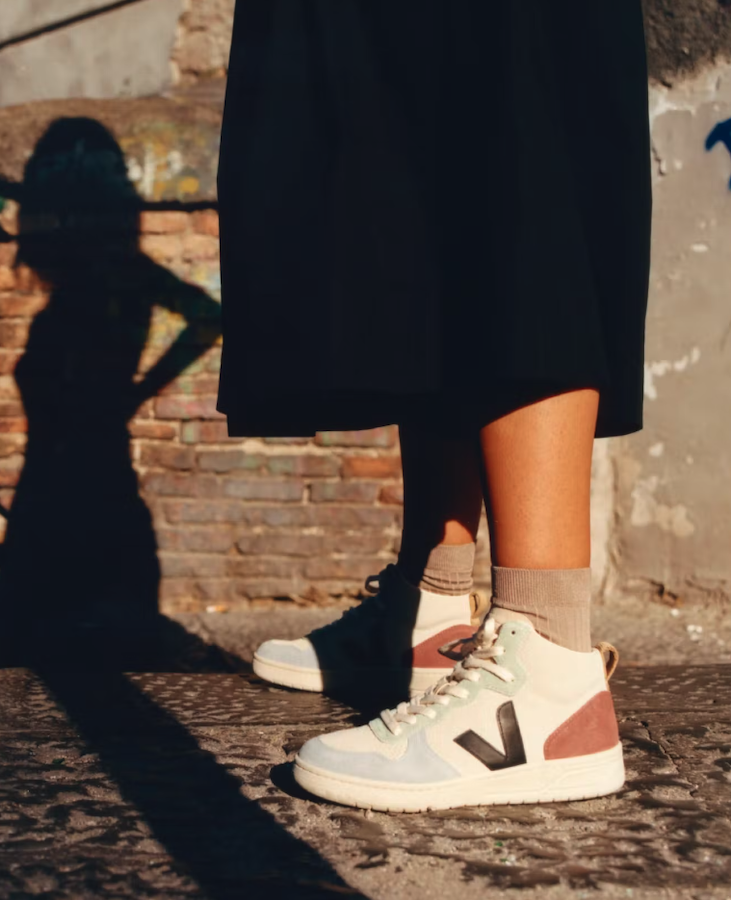
How I’m Incorporating Sustainability Into My Wedding
Who Says Weddings Have To Be Wasteful?
In two weeks, my husband and I will be hosting our wedding in New Orleans (cue my nervous laughter).
While, technically, we’re already married—Jovanni and I were legally wed in our living room wearing Taco Bell onesies during the pandemic (yes, I’m serious)—we’re finally having our dream day. We’ll celebrate in person with our family and friends at a destination we both love and cherish. We’ll toast and dance with a second line parade, devour beignets and pralines, and inhale the sweet scent of jasmine throughout our Garden District venue.
“Weddings can actually be sustainable whether we have five or 500 guests.”
Over the last three years of planning and re-planning, I’ve learned a lot about the more than $70 billion wedding industrial complex. Namely, how expensive and wasteful weddings can be—from flowers and favors to excess food. I’ve long struggled with the guilt of being wasteful, and that shame multiplied by 100 guests sends my anxiety to new heights.
Through planning my own wedding though, I’ve also learned these celebrations don’t have to be environmentally harmful. If we’re intentional, weddings can actually be sustainable whether we have five or 500 guests, and even while honoring traditions. Here’s how.
Find A Sustainable Wedding Dress
Prior to our engagement, when Jovanni and I first discussed rings, my main request was for a lab-grown diamond. Not only was it more bang for our buck, but it was a sustainable and ethical piece I could feel proud wearing each day.
My values were similar when shopping for a wedding dress, so it didn’t make sense to go for a fancy designer or make that traditional visit to Kleinfeld’s. Instead, I said yes to the (sustainable) dress at a secondhand shop.
“I said yes to the (sustainable) dress at a secondhand shop.”
On my 30th birthday, before a celebratory dinner, my best friend and I stopped by a bridal consignment store in Seattle. We happened upon a stunning Stella York gown, a sample that had never been worn before. It was in pristine condition, blush layers of tulle accented with floral lace and delicate buttons.
As I slipped it on, the back zipped up beautifully—a rarity in the wedding world—and I took it as a sign that this was the dress. I felt as beautiful as I ever had, and because only minimal alterations were necessary, I’ll even be able to pass it on to another bride after the big day.
Send Eco-Friendly Invites
Dress? Check. Then came time for the invitations. Having previously sent two rounds of Save the Dates with the postponement, I couldn’t justify mailing a third set of paper goods that would end up in the trash (or hopefully in recycling).
“We opted for a simple invite from Zola and requested RSVPs via our wedding website.”
I still wanted a paper invitation as a memento though. Instead of customizing an entire suite, we opted for a simple invite from Zola and requested RSVPs via our wedding website which had all the information they’d need. A bonus: Guests shared how much easier it was to respond online than to mail yet another envelope back and forth.
It was an additional sustainable swap I could check off my list—one anyone can easily recreate on Zola, craft in Canva and print locally at Staples, or send entirely online. (One pro tip: Buy a custom wedding URL so guests can easily remember the link to RSVP!)
Get Creative With Favors
I then debated over party favors. I’ve attended too many events in the past—conferences, showers, fundraisers—which included tchotchke favors I never used again, if only for the sake of having something to give to attendees. And with a destination wedding, hefty favors would also add to the weight of guests’ luggage.
“We’re making a donation to a local nonprofit with the budget we had set aside for traditional favors.”
We decided to prioritize welcome bags with items our loved ones can use over the wedding weekend (the wedding timeline, Advil, a New Orleans-inspired snack and so on).
We also hope to provide digital memories with a Vanity Fair-style photo booth, and we’re making a donation in everyone’s honor to a local nonprofit with the budget we had set aside for traditional favors.
Flowers, Centerpieces, & All The Other Details
When selecting flowers and frames, I was grateful I had followed the most sustainable rule of all: Picking a venue with built-in decor.
Our venue, a former market-turned-garden-courtyard includes Spanish arched doorways, sprawling vines, and a keystone fireplace (not unlike my dream home)—so little else is needed to make the space stand out. Both my budget and my conscience are at ease as we’ve made minimal decor decisions.
“We’re working with vendors to rent most pieces rather than buy.”
For the external decor we’ve chosen, we’re working with vendors to rent most pieces rather than buy—and lots of smaller pieces have been acquired secondhand as well. For example, I wanted umbrellas for guests to use during the second line parade; I eventually scored a local deal on Facebook Marketplace for 25 gently used umbrellas for $50.
One of my bridesmaids is lending us the gorgeous acrylic table numbers from her own wedding several months ago. A wooden easel to hold our welcome sign? I grabbed it for $10 from a newlywed in our building. The quality and the aesthetics have still been in line with my vision without the waste.
Donate The Leftovers
In the coming days, I’ll be reaching out to my florist about donating the leftover greenery to a nursing home or hospital. I’m also inquiring with the catering company about giving away excess food to a local fire station or homeless shelter. And for my bridal shower dress, I’ve gifted it to a secondhand shop.
For some expenses that have been prepaid, it’s good to know our money won’t go to waste; and for others, we’ll able to recoup some of the costs (like passing on the umbrellas and easel to someone else). Plus, thinking ahead about these details makes clean-up even easier.
“I’m doing my best to manage my personal responsibility…so that our love will be the only outstanding impact from that day.”
Weddings—while a once-in-a-lifetime event—come with a sizable footprint, and there are certainly ways in which I haven’t been sustainable. It is a destination wedding, after all.
But like all eco-conscious folks, I’m doing my best to manage my personal responsibility and purchases so that our love will be the only outstanding impact from that day.
And in case you’re wondering: Yes, I will have Taco Bell cater some late-night cravings in the Big Easy, too. It’s only fitting.
Have a sustainable wedding tip of your own? Share in the comments!
Henah Velez (she/her) is an Editor at The Good Trade. She holds a Master’s in Social Entrepreneurship and is a proud Rutgers grad. Originally from NJ, Henah’s now in Santa Barbara, CA, where she loves shopping small, hanging with her pets, or traveling. Say hi on Instagram!





